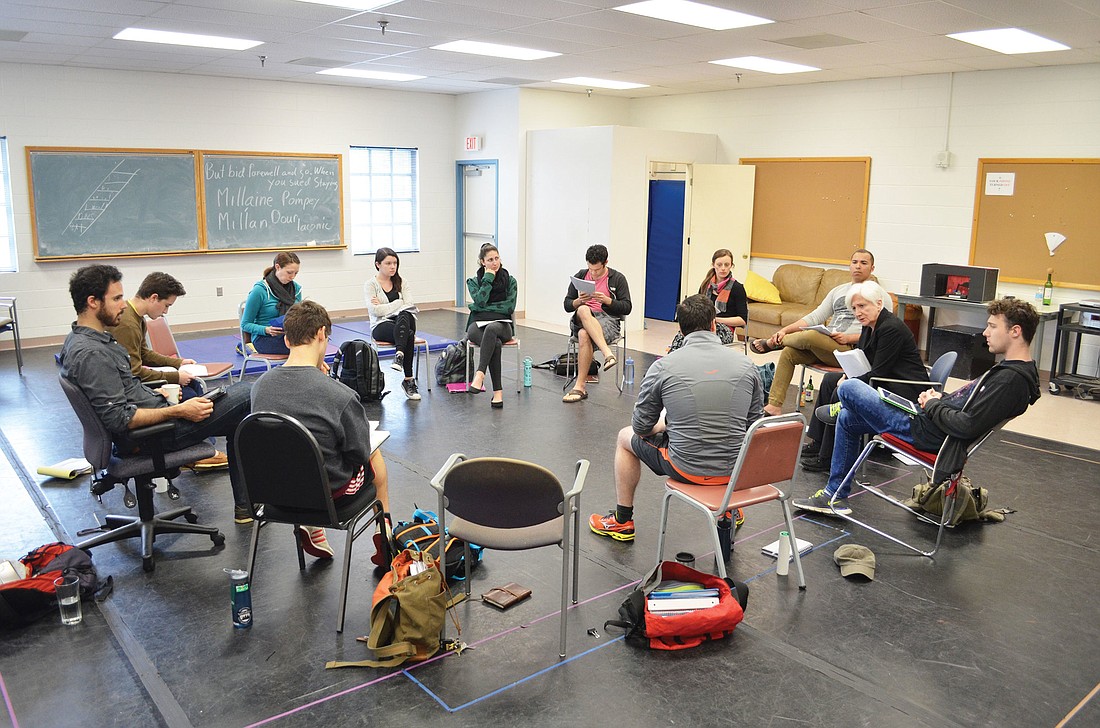- November 24, 2024
-
-
Loading

Loading

Some people call it luck. But when it comes to ancient Greek playwrights, there’s no such thing as luck: only fate.
Whatever one calls good or bad fortune, Olympia Dukakis views the pivotal moments in her life as a series of lucky circumstances. An accomplished actress with more than 50 years of acting experience on stage and screen, Dukakis views one particular moment in her acting career as a fortunate series of events: her Oscar for best supporting actress in “Moonstruck.”
“When I got the Academy Award, my mother said to me, ‘You were lucky,’” says Dukakis. “I understood exactly what she meant. There were 50 other actresses I knew who could have played that part. I was lucky. The gods, somebody, said ‘Olympia.’”
Fate also landed her at the Ethel Barrymore Theatre in 1986 in the play “Social Security.” Norman Jewison came to the show looking for a lead actor but stumbled on Dukakis. “Jewison saw me in that show three times and he hired me,” says Dukakis. “What is that? Luck. But the thing with the Greeks is that you have to know when to take your luck.”
Fate and luck were at the center of a recent five-day intensive acting workshop Dukakis led with the dozen Florida State University/Asolo Conservatory second-year acting students. With the students’ production of Anton Chekhov’s “The Cherry Orchard” running April 7 to 26, the workshop allowed the students not only to build their individual acting process but also to meditate on their own particular fate for their careers.
“It was exciting to hear what she had to say, and it was amazing to hear her say, ‘Don’t wait to be chosen. Do what you want to do now. Don’t sit around and wait,’” says Kim Stephenson, conservatory student.
Sitting in a circle in a private rehearsal room, Dukakis and the class dissected Sophocles’ tragedy “Electra” over the five days of the workshop. Though the students were all familiar with Greek theater, inhabiting and focusing on the supremely cathartic and tragic circumstances of these ancient dramas was a learning experience.
“Greek theater is so daunting,” says Joseph Knispel, conservatory student. “The roles are so huge. But you realize everything you need as an actor or will ever need is in you. I know what grief feels like.”
The conservatory students are taking this examination of Olympic-sized emotions and fate into Chekhov’s classical play that focuses on the end of an era for an aristocratic family and the students’ pivotal third and final year of their M.F.A. program.
After two years of studying, class and productions, “The Cherry Orchard” will most likely be the last production all 12 of the students are in together; their third year will be spent scattered in supporting roles in the Asolo Rep’s mainstage season. Knispel says like the characters in ancient Greek drama, he and the rest of his class are on the edge of a whole shift in their lives.
“There are a lot of people who don’t get the chance to get into the arena, wonderful actors,” says Dukakis. “It doesn’t make me a better actor. It doesn’t make me a better person. It makes me lucky. You’ve got to take your luck, and I grabbed it and did the best I could every time.”